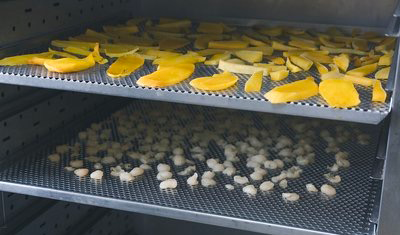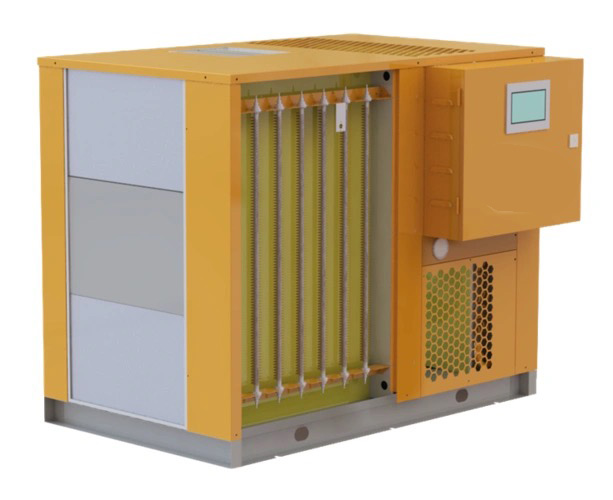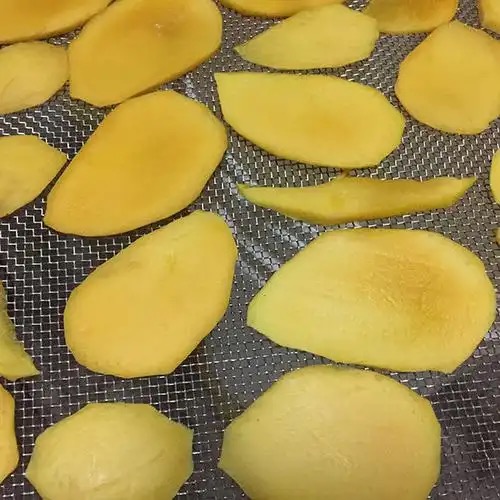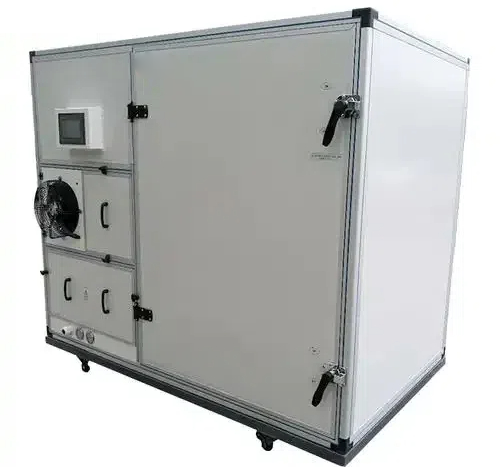
Content Menu
● Introduction
● What is a Food Dryer?
● Key Benefits of Using Food Dryers
>> Extended Shelf Life
>> Enhanced Flavor Concentration
>> Nutrient Retention
>> Cost-Effectiveness
>> Versatility
● How Do Heat Pump Dryers Work?
>> Advantages of Heat Pump Dryers Over Traditional Methods
● Applications of Food Dryers
>> Commercial Food Production
>> Preservation for Emergency Preparedness
>> Culinary Arts
>> Home Use
>> Health and Wellness Industry
● Choosing the Right Food Dryer
● Common Misconceptions About Food Drying
>> Dried Foods Are Unhealthy
>> All Foods Can Be Dried Equally Well
>> Dried Foods Lose All Flavor During Processing
● Conclusion
● Frequently Asked Questions
>> 1. What types of foods can be dried using a heat pump dryer?
>> 2. How does drying affect the nutritional value of foods?
>> 3. Are heat pump dryers more energy-efficient than traditional dryers?
>> 4. How long does it take to dry foods using a heat pump dryer?
>> 5. Can I use my heat pump dryer for home use?
Introduction
In the world of food preservation, food dryers play a crucial role. They allow for the removal of moisture from various food products, extending their shelf life and enhancing flavors. This article will delve into the benefits of using food dryers, particularly focusing on how they compare to other drying methods, their applications in different industries, and the advantages they offer to businesses.

What is a Food Dryer?
A food dryer is an appliance designed to remove moisture from food items through various drying methods. The most common types include:
- Convection Dryers: Use hot air circulation to dry food.
- Dehydrators: Utilize low heat and airflow to remove moisture.
- Heat Pump Dryers: Employ a heat pump system that is energy-efficient and effective for drying.
Heat pump dryers are particularly noteworthy due to their energy efficiency and ability to maintain consistent temperatures throughout the drying process.
Key Benefits of Using Food Dryers
Extended Shelf Life
One of the primary benefits of using a food dryer is the extended shelf life it provides for various food products. By removing moisture, food dryers inhibit the growth of bacteria, mold, and yeast, which are responsible for spoilage. This means that foods can be stored for months or even years without significant loss in quality.
Enhanced Flavor Concentration
Drying food concentrates its flavors. For instance, sun-dried tomatoes have a more intense flavor compared to fresh tomatoes. This concentration makes dried foods popular in culinary applications. Chefs often prefer dried ingredients for their robust flavors that can elevate dishes.
Nutrient Retention
Contrary to some beliefs, drying can preserve many nutrients found in fresh foods. For example, vitamins A and C remain intact during the drying process, making dried fruits and vegetables a healthy snack option. Additionally, certain minerals like potassium and magnesium are also retained, making dried foods not only tasty but nutritious as well.

Cost-Effectiveness
Investing in a food dryer can lead to significant cost savings over time. Businesses can purchase seasonal produce in bulk when prices are low and dry them for later use. This practice not only helps in reducing waste but also allows businesses to offer products at competitive prices throughout the year.
Versatility
Food dryers can be used for a wide range of products, including fruits, vegetables, meats, and herbs. This versatility makes them an invaluable tool for both home cooks and commercial kitchens. From creating snacks like apple chips or banana chips to preparing dried herbs for seasoning, the possibilities are endless.
How Do Heat Pump Dryers Work?
Heat pump dryers operate by utilizing a refrigeration cycle that extracts heat from the air and uses it to evaporate moisture from food items. The process involves:
1. Evaporation: Moist air is drawn into the dryer where it passes over a heat exchanger.
2. Condensation: The moisture condenses into water droplets which are collected.
3. Recycling Heat: The remaining hot air is recycled back into the drying chamber.
This method is not only efficient but also environmentally friendly as it consumes less energy compared to traditional drying methods.
Advantages of Heat Pump Dryers Over Traditional Methods
- Energy Efficiency: Heat pump dryers use significantly less energy than conventional electric or gas dryers due to their ability to recycle heat.
- Consistent Temperature Control: They maintain a steady temperature throughout the drying process, which helps prevent overheating and preserves the quality of the food.
- Lower Operating Costs: Although initial investment costs may be higher, the long-term savings on energy bills make heat pump dryers a cost-effective choice.
- Reduced Environmental Impact: By consuming less energy and producing less waste heat, these dryers contribute positively to environmental sustainability efforts.
Applications of Food Dryers
Commercial Food Production
In commercial settings, food dryers are essential for producing dried fruits, jerky, and other dehydrated snacks that have become popular among consumers seeking healthy options. Many companies utilize large-scale heat pump dryers to meet demand while ensuring product quality.
Preservation for Emergency Preparedness
Food dryers are increasingly used for emergency preparedness by individuals and organizations looking to stockpile non-perishable foods. Dried foods can be stored for long periods without refrigeration, making them ideal for disaster preparedness kits or long-term storage solutions.
Culinary Arts
Chefs use dried ingredients to enhance dishes with unique flavors and textures that cannot be achieved with fresh ingredients alone. Dried mushrooms add an earthy depth to sauces, while dried fruits can provide sweetness in savory dishes.
Home Use
Home cooks benefit greatly from having a food dryer at their disposal. It allows them to control what goes into their snacks without preservatives or additives commonly found in store-bought options. Families can dry fruits for healthy snacks or prepare homemade granola with dried nuts and fruits.
Health and Wellness Industry
The health and wellness industry has seen a rise in demand for dried foods as consumers become more health-conscious. Products like kale chips or beetroot crisps are popular among those looking for nutritious snack alternatives.
Choosing the Right Food Dryer
When selecting a food dryer for your needs, consider the following factors:
- Capacity: Larger models can handle more food at once, making them suitable for commercial use or larger families.
- Energy Efficiency: Look for models that use less energy while providing effective drying; this will save money on utility bills over time.
- Temperature Control: Adjustable temperature settings allow for precise drying based on the type of food being processed; different foods require different temperatures for optimal results.
- Ease of Use: User-friendly controls and easy-to-clean designs enhance convenience; features like digital displays or timers can simplify operation.
- Durability: Choose models made from high-quality materials that withstand regular use; this ensures longevity and reliable performance over time.
Common Misconceptions About Food Drying
Despite its many benefits, there are several misconceptions surrounding food drying that need clarification:
Dried Foods Are Unhealthy
Many people believe that dried foods are unhealthy due to added sugars or preservatives; however, when prepared correctly using a food dryer, they can be just as nutritious as fresh options.
All Foods Can Be Dried Equally Well
Not all foods dry equally well; some require specific techniques or conditions to achieve optimal results. For example, high-water-content fruits like watermelon may not yield desirable results if not properly prepared before drying.
Dried Foods Lose All Flavor During Processing
While some flavor loss can occur during drying due to exposure to heat and air, many flavors become concentrated instead; this is why dried herbs often have stronger flavors than their fresh counterparts.
Conclusion
Food dryers are an indispensable tool in both home kitchens and commercial food production settings. They offer numerous benefits including extended shelf life, enhanced flavors, nutrient retention, cost-effectiveness, and versatility across different types of foods. As technology advances, heat pump dryers stand out as an energy-efficient option that not only preserves food but also supports sustainable practices in food processing.
By investing in a high-quality food dryer, businesses can improve their product offerings while reducing waste and maximizing profits.

Frequently Asked Questions
1. What types of foods can be dried using a heat pump dryer?
Heat pump dryers can effectively dry fruits, vegetables, meats (for jerky), herbs, and even some dairy products like yogurt.
2. How does drying affect the nutritional value of foods?
Drying retains many nutrients found in fresh foods; however, some sensitive vitamins may diminish slightly during the process.
3. Are heat pump dryers more energy-efficient than traditional dryers?
Yes, heat pump dryers use significantly less energy compared to traditional electric or gas dryers due to their recycling mechanism.
4. How long does it take to dry foods using a heat pump dryer?
Drying times vary depending on the type of food and thickness; however, most foods can be dried within several hours.
5. Can I use my heat pump dryer for home use?
Absolutely! Many heat pump dryers are designed for home use and can easily fit into your kitchen or pantry space.












